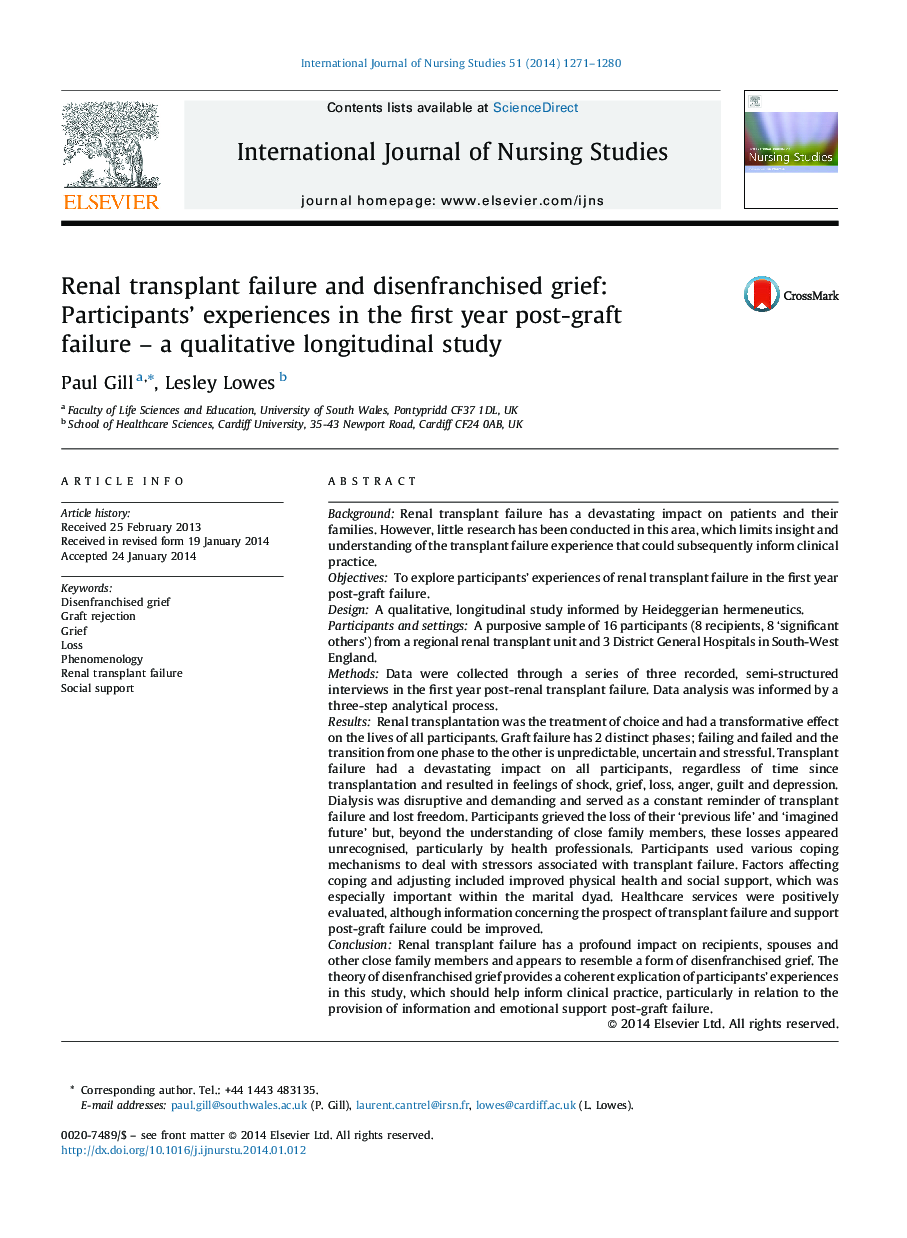| کد مقاله | کد نشریه | سال انتشار | مقاله انگلیسی | نسخه تمام متن |
|---|---|---|---|---|
| 1076213 | 1486532 | 2014 | 10 صفحه PDF | دانلود رایگان |
BackgroundRenal transplant failure has a devastating impact on patients and their families. However, little research has been conducted in this area, which limits insight and understanding of the transplant failure experience that could subsequently inform clinical practice.ObjectivesTo explore participants’ experiences of renal transplant failure in the first year post-graft failure.DesignA qualitative, longitudinal study informed by Heideggerian hermeneutics.Participants and settingsA purposive sample of 16 participants (8 recipients, 8 ‘significant others’) from a regional renal transplant unit and 3 District General Hospitals in South-West England.MethodsData were collected through a series of three recorded, semi-structured interviews in the first year post-renal transplant failure. Data analysis was informed by a three-step analytical process.ResultsRenal transplantation was the treatment of choice and had a transformative effect on the lives of all participants. Graft failure has 2 distinct phases; failing and failed and the transition from one phase to the other is unpredictable, uncertain and stressful. Transplant failure had a devastating impact on all participants, regardless of time since transplantation and resulted in feelings of shock, grief, loss, anger, guilt and depression. Dialysis was disruptive and demanding and served as a constant reminder of transplant failure and lost freedom. Participants grieved the loss of their ‘previous life’ and ‘imagined future’ but, beyond the understanding of close family members, these losses appeared unrecognised, particularly by health professionals. Participants used various coping mechanisms to deal with stressors associated with transplant failure. Factors affecting coping and adjusting included improved physical health and social support, which was especially important within the marital dyad. Healthcare services were positively evaluated, although information concerning the prospect of transplant failure and support post-graft failure could be improved.ConclusionRenal transplant failure has a profound impact on recipients, spouses and other close family members and appears to resemble a form of disenfranchised grief. The theory of disenfranchised grief provides a coherent explication of participants’ experiences in this study, which should help inform clinical practice, particularly in relation to the provision of information and emotional support post-graft failure.
Journal: International Journal of Nursing Studies - Volume 51, Issue 9, September 2014, Pages 1271–1280
